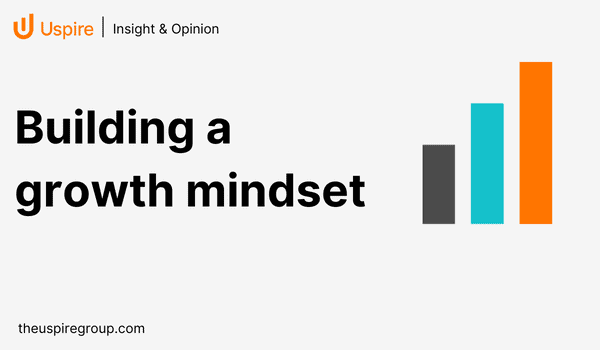A strong growth mindset is perhaps the most fundamental aspect of all in the character of a progressive leader. Be it resilience, awareness, inspiration, vision, desire, empathy, determination or any other quality of the best leaders, my observation of them all is that, no matter what, they all have a personal growth mindset at their very core, they want to get better and will explore many alternatives and opportunities to make that happen. No matter what stage of your career you are in, nurturing and preserving this is absolutely essential. If people can see you want to get better both for yourself and for them it makes a massive difference. If we want to develop a culture of continuous improvement it must start with ourselves. My reflections and learning's on what that takes both through my own journey and watching many others. I hope this helps somebody.
Keep an appetite for improving your own functional & leadership skills
Believe you can always get better and look to identify areas of your performance that can be developed. Assess frequently and actively seek solutions for yourself based on your own evaluation. Create time to assess yourself and then use that same time on improving those specific area. None of us have perfect skills - it is highly reassuring for others to see us accept that and be part of development forums.
Set yourself personal challenges within your own routines
Have them and keep looking for them. Challenges should not just be for others. Set yourself daily & weekly objectives related to your own personnel day to day routines and rhythms. These can be small things, numbers of meetings I attend on time, number of actions I complete, number of 1 to 1s you have through to bigger objectives for the week. Identify areas where you know you are not good and set yourself the task to get better - and ask for help in that process. Leaders should never be ashamed to ask for help when they need it - in fact it creates deep engagement.
Know your learning styles
Growth and development is much more enjoyable and efficient if we know which approach leads us to the highest benefit. There are a multitude of approaches to learning - ensure you know what works for you and what does not. We have all struggled through things that we didn't find the right way. Some like to read, some like to write, some like to listen, some like to in-line, some like off-line, some like to be involved, some do not. some are practical, some are theoretical. We are all different and we all enjoy doing things in certain ways. If we enjoy something we usually get far more from it that if things are forced at us.
Recognise the opportunities - even if they might not look or feel like it!
Failures and mistakes are as much as an opportunity to grow as success - in some ways more powerful. How you see these moments are hugely important in building yourself for the next phase of personal development. Don't get down about them. The greatest challenge is to sometime talk openly and candidly about in the context of yourself, not others. Find someone you can trust and try - the impetus must come from yourself. If that is to sit down and write things down yourself about it. Equally ask for feedback - the worst that can happen is you disregard it, the best is you will get a view you never had yourself. Failure is only failure if we don't try to learn.
Be Patient - Accept personal development takes time and effort.
A realistic attitude to timescales will stop frustration. Learning and personal growth of skills is a marathon and not a sprint. It requires time and a nurturing mindset. Experience is a powerful force in growth and by definition this can only be built over time. It cannot be rushed. We must also appreciate growth is rarely linear, but will vary in shape and rates. Learn to look at yourself over longer timescales - 6 months, 12 months, 3 years.
Be Inspired by others.
Look at others both near and far and take inspiration from how they operate and what they achieve. Try to listen and learn from those your respect. When we were children we all had those we look up to who we would like to emulate, whether we do or not is academic, the fact is as a child it inspired us to try to get better. Just because we are now adults why should that change? It should not. We all need inspiration - be clear about what it is inspires you to improve.
Believe in yourself and what you can achieve.
Believe that through your efforts and learning you will improve and you will get personal benefits. Never feel inferior about learning - it is not a reflection of weakness but a powerful statement of strength, people who want to learn are hugely engaging and people feel naturally drawn to them. If people can help and they see you want help then a powerful bond is formed at a fundamental level. Also believe that you will improve the environment for those you lead by improving yourself. In that way your development is not just about yourself. but positive impact for others.
Learn how to use all forms of feedback to your advantage
Be it advisory, suggestive, critical or complimentary, feedback is one of the great gifts we have as individuals, it is also perhaps the most powerful tool in self improvement. It is such a powerful tool that as both givers and receivers we have a responsibility to ensure it is treated with respect and used appropriately. Too often we waste it or create barriers through negative responses or not being clear in our mind about what we are trying to achieve when giving it. In my experience the most important aspect to feedback both as givers and receivers is that we need to think about what we are trying to achieve and what we can do with it. The key is to have a structured and thought through approach - we will all be better for it.
Understand the relationship between process' and results and how to use both in personal development.
Focus on your day to day process' to improve and the results will follow. Break your day down into its activities and process' and see where you can make small improvements. results will follow improvements in these areas. As Bill Walsh tells us "The score will take care of itself." At the same time as his great predecessor Lombardi taught us "If the score doesn't matter why the hell is there a scoreboard at the end of the field." Have aligned short term and longer term results you want to achieve as a result of what you want to improve in - ensure they are linked. Learn to use both in your journey.
Have your own personal sense of purpose and drive.
Nobody should have to give us this. Think what is really important to you. Be clear about why you are leading and by making yourself and those around you improve you can deliver against this sense of purpose. This will give you inner drive to overcome any challenges in the pursuit of this purpose through ongoing development of your own skills and capability.
A growth mindset is a powerful force in many ways. To have the will, desire and approach to improve oneself is not only tremendously enriching on a personal level, it is also hugely motivating for those around us. It shows we want to learn with our colleagues and grow with them. Never forsake the opportunity to create that alignment - but as always in leadership that must start with our own mentality... Sun Tzu taught us "opportunities multiply when they are seized." its starts with us.

